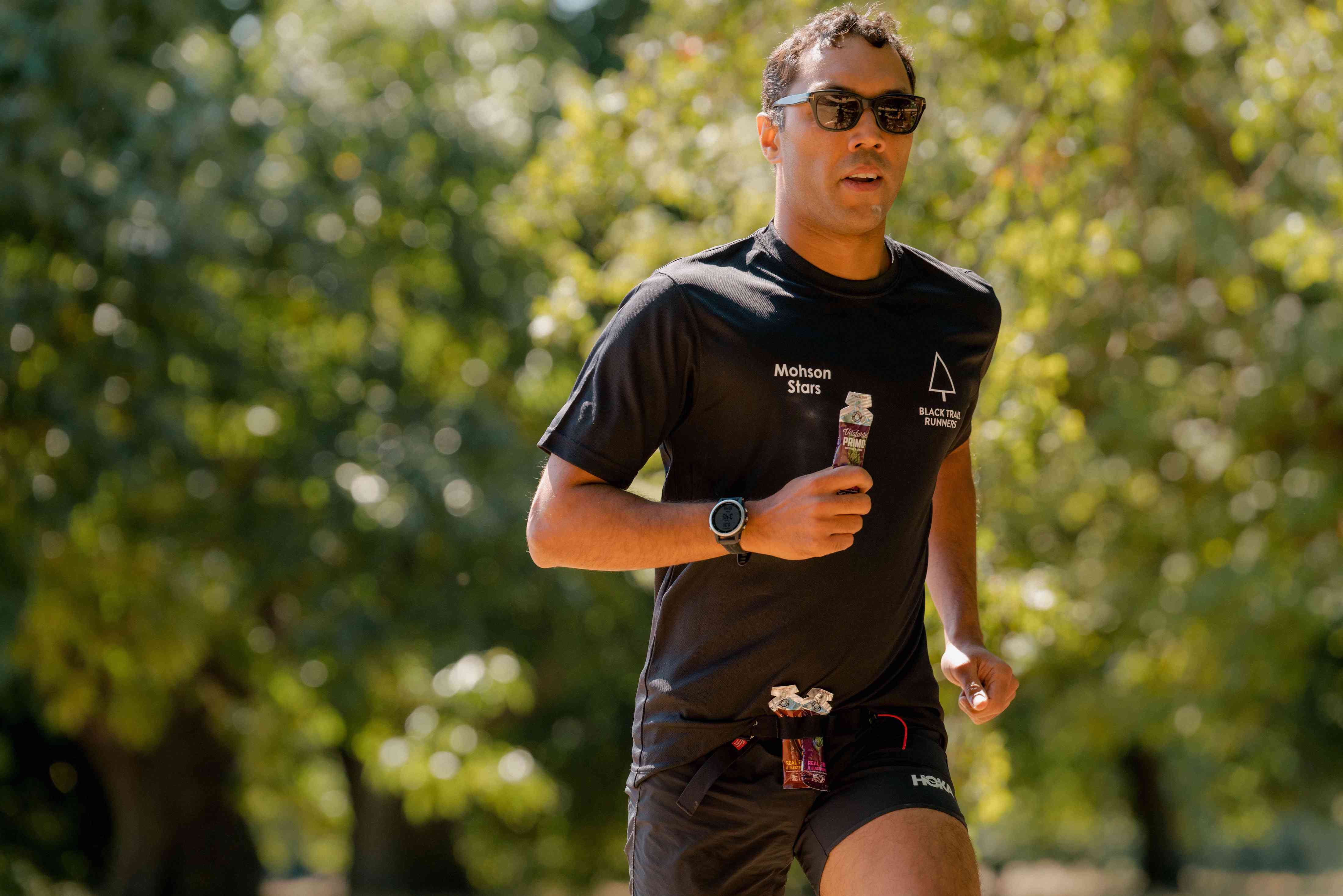

Featured
How Long Is A Half Marathon
Modified: January 1, 2024
Find out the cost of participating in a half marathon with our featured guide. Discover everything you need to know about the expenses involved in this popular endurance event.
Introduction
Half marathons have become increasingly popular in recent years, attracting runners of all ages and abilities. Whether you are a seasoned runner looking for a new challenge or a beginner seeking to push your limits, participating in a half marathon can be a rewarding experience both physically and mentally.
However, before you lace up your running shoes and hit the pavement, it’s essential to understand the financial aspects associated with running a half marathon. From registration fees to additional expenses, the cost of participating in a half marathon can vary significantly.
This article aims to provide you with a comprehensive guide on how much a half marathon may cost you. We will explore the factors that influence the cost, including registration fees and additional expenses. Moreover, we will offer some practical tips on budgeting for a half marathon, ensuring that you can make the most of your racing experience without breaking the bank.
So if you are curious about the financial implications of running a half marathon, or you are simply looking for ways to budget effectively for your upcoming race, read on to find out everything you need to know.
Understanding Half Marathons
A half marathon is a road race that covers a distance of 13.1 miles or 21.1 kilometers. It is a popular race distance that bridges the gap between a 10K (6.2 miles) and a full marathon (26.2 miles). Half marathons attract a wide range of participants, from casual runners seeking personal achievements to competitive athletes striving for faster times.
Running a half marathon requires a combination of physical endurance, mental toughness, and proper training. It is essential to prepare adequately by following a training plan that gradually builds distance and incorporates speed work and rest days to avoid injury.
Half marathons are often held as organized events with designated routes, aid stations, and crowd support. They can take place in a variety of settings, from scenic coastal routes to bustling urban streets. The atmosphere of these races is typically lively and enthusiastic, with participants cheered on by spectators along the course.
Many half marathons also include amenities such as finisher medals, post-race celebrations, and commemorative t-shirts. These extras add to the overall experience and make participating in a half marathon even more memorable.
It’s important to note that half marathons are open to runners of all fitness levels. Whether you are a seasoned runner or a beginner, there are plenty of training resources and support available to help you achieve your goals. Participating in a half marathon can be an excellent way to challenge yourself, embrace a healthy lifestyle, and become part of a vibrant running community.
Factors Affecting the Cost of Half Marathons
The cost of participating in a half marathon can vary depending on several factors. Understanding these factors will help you plan and budget for your race effectively. Here are some key factors that influence the cost:
- Location: The location of the half marathon plays a significant role in determining the cost. Races held in major cities or popular tourist destinations tend to have higher registration fees compared to smaller, local races. Additionally, the cost of travel and accommodation will vary depending on the location.
- Level of Organization: The level of organization and amenities provided by the race organizers can impact the cost. Well-established races with professional timing systems, ample aid stations, and post-race festivities typically come with a higher price tag.
- Race Size: The number of participants in the race can affect the cost. Races with larger participant numbers may have higher registration fees to cover logistics and resources required to accommodate a larger crowd.
- Timing: The time of year when the race takes place can influence the cost. Races held during peak running season or popular months may have higher registration fees due to increased demand.
- Early Bird vs. Regular Registration: Many races offer discounted registration fees for early bird sign-ups. Taking advantage of early bird registration can save you money compared to registering closer to the race date.
- Additional Amenities: Some races offer extra amenities such as finisher medals, participant t-shirts, personalized bibs, or access to post-race food and entertainment. These additional perks may come at an additional cost.
It’s important to research and compare the costs and offerings of different half marathons before making your decision. Consider your budget, preferences, and what you value most in a race experience.
Remember, the cost of a half marathon is not solely about the registration fee. There are other expenses to consider, such as travel, accommodation, training gear, and post-race recovery. Taking all these factors into account will help you determine the overall cost of participating in a half marathon and properly plan your budget.
Registration Fees for Half Marathons
Registration fees for half marathons can vary significantly depending on various factors, including the race’s location, organization, and amenities provided. It’s important to understand the breakdown of these fees and what they typically cover. Here are some key points to consider:
Base Registration Fee: The base registration fee is the primary cost of participating in a half marathon. It typically covers the basic logistics of the race, such as course planning, timing system, and participant amenities like race bibs and safety pins.
Early Bird vs. Regular Registration: Many races offer early bird registration discounts for participants who sign up early. By registering during this period, you can save money on the base registration fee. However, be sure to check the specific terms and deadlines for early bird registration to take advantage of the reduced price.
Additional Amenities Cost: Some races provide extra amenities, such as finisher medals, participant t-shirts, or personalized bibs. These additional perks often come at an additional cost. While they are not necessary to participate in the race, they can enhance the overall experience and serve as mementos of your achievement.
Race Champion Entry Fees: In some high-profile races, elite runners or previous race champions may receive complementary race entry. These fees are often covered by sponsors or race organizers to attract top-level athletes. However, these complimentary entries do not typically apply to the general participants.
Charity Entries: Many races offer charity entries that involve fundraising for a designated charitable organization. Participants who choose this option commit to raising a specific amount for the charity in addition to paying the base registration fee. Charity entries are an excellent way to support a cause while participating in a half marathon.
Keep in mind that registration fees are typically non-refundable, so it’s important to be confident in your decision and ensure you can commit to the race before registering. Some races may provide options for deferral or transfer of registration to a future event for a fee, but these policies vary, so be sure to check the race’s specific registration terms.
Researching and comparing the registration fees and offerings of different half marathons can help you find the best value for your money. Consider your budget, the amenities provided, and the overall race experience when making your decision.
Additional Expenses to Consider
When budgeting for a half marathon, it’s essential to factor in additional expenses beyond the registration fees. These expenses can vary depending on individual preferences and circumstances. Here are some common additional expenses to consider:
- Travel and Accommodation: If the race is not in your local area, you may need to account for travel costs such as transportation, flights, or gas. Additionally, you may need to book accommodations, such as a hotel room or an Airbnb, depending on the distance from your home.
- Training Gear: Proper running shoes, comfortable clothing, and other running gear are essential for your training and the race itself. Investing in quality gear will not only enhance your performance but can also prevent injuries.
- Training Resources: Depending on your training style, you may choose to invest in training resources such as a running coach, a training plan, or a fitness app. These resources can provide guidance and structure to help you reach your running goals.
- Diet and Nutrition: As you train for a half marathon, it’s important to fuel your body properly. Consider the cost of maintaining a healthy diet and any necessary supplementation or sports nutrition products.
- Race-Day Extras: On the day of the race, you may incur additional expenses such as parking fees or transportation to the race start line. You may also want to bring your own hydration pack, energy gels, or snacks to fuel yourself during the race.
- Post-Race Recovery: After completing a half marathon, proper recovery is crucial. This may involve expenses such as massage therapy, physical therapy, or purchasing recovery tools like foam rollers or compression gear.
It’s important to assess your personal needs and budget accordingly for these additional expenses. Consider which expenses are necessary for your comfort, performance, and overall enjoyment of the race experience.
Planning ahead and estimating these costs will help you avoid any surprises and ensure that you can fully enjoy your journey to the half marathon finish line.
Tips for Budgeting for a Half Marathon
Participating in a half marathon is not only a physical and mental challenge but also an investment of your time and money. Proper budgeting can help you manage your expenses and ensure that you can fully enjoy your race experience. Here are some tips for budgeting for a half marathon:
- Research and Compare Costs: Take the time to research and compare the costs of different half marathons. Consider the registration fees, additional expenses, and amenities offered by each race. This will help you choose a race that aligns with your budget and preferences.
- Create a Race Budget: Develop a budget specifically for the race. Consider all the expenses, including registration fees, travel, accommodation, training gear, and post-race recovery. Create a realistic budget that allows for flexibility and unforeseen costs.
- Factor in Training Costs: Don’t forget to include the cost of training in your budget. This may include training resources, gym memberships, or fitness classes. Plan ahead and allocate funds for these expenses.
- Take Advantage of Early Bird Registration: Registering early for a race can save you money. Keep an eye out for early bird registration discounts and take advantage of them to secure a lower registration fee.
- Explore Accommodation Options: If you need to travel for the race, consider alternative accommodation options such as staying with friends or family, sharing a hotel room with fellow runners, or looking for budget-friendly accommodations on platforms like Airbnb.
- Consider Fundraising: Explore the option of fundraising for a charity associated with the race. This not only allows you to support a cause but can also help offset some of the race costs by reaching out to friends, family, and colleagues for donations.
- Look for Discounts and Deals: Keep an eye out for discounts or deals on running gear and equipment. Look for sales or promotional offers from sports retailers or consider buying second-hand gear from online marketplaces.
- Track Your Expenses: Keep a record of your expenses related to the race. This will help you stay on track with your budget and identify areas where you may need to adjust spending.
- Seek Sponsorship Opportunities: If you have a significant social media presence or are part of a running club or community, consider reaching out to potential sponsors who may be willing to support you financially or provide gear and products in exchange for promotion.
- Find Ways to Save: Look for creative ways to save money, such as carpooling to the race with other participants or finding free or low-cost activities for post-race recovery and celebration.
By following these budgeting tips, you can ensure that your half marathon journey is financially manageable and allows you to fully enjoy the race experience without unnecessary stress.
Conclusion
Participating in a half marathon is a thrilling and challenging endeavor that requires dedication, training, and financial planning. Understanding the factors that affect the cost of a half marathon, including registration fees and additional expenses, is crucial in effectively budgeting for your race.
Factors such as location, organization, race size, timing, and additional amenities all contribute to the overall cost of participating in a half marathon. Taking the time to research and compare different races can help you find the best value for your money.
It’s essential to consider not only the registration fees but also the additional expenses associated with running a half marathon. Costs such as travel and accommodation, training gear, diet and nutrition, and post-race recovery should all be factored into your budget planning.
By following some key budgeting tips, like taking advantage of early bird registration, exploring accommodation options, seeking sponsorship opportunities, and tracking your expenses, you can effectively manage the financial aspects of your half marathon journey.
Remember that participating in a half marathon is not solely about the cost. It’s about the personal achievement, the sense of accomplishment, and the unforgettable race experience. With proper budgeting, you can ensure that you make the most of your half marathon adventure without compromising your financial well-being.
So lace up your running shoes, set your sights on the finish line, and embark on a memorable journey as you conquer the challenge of a half marathon.









